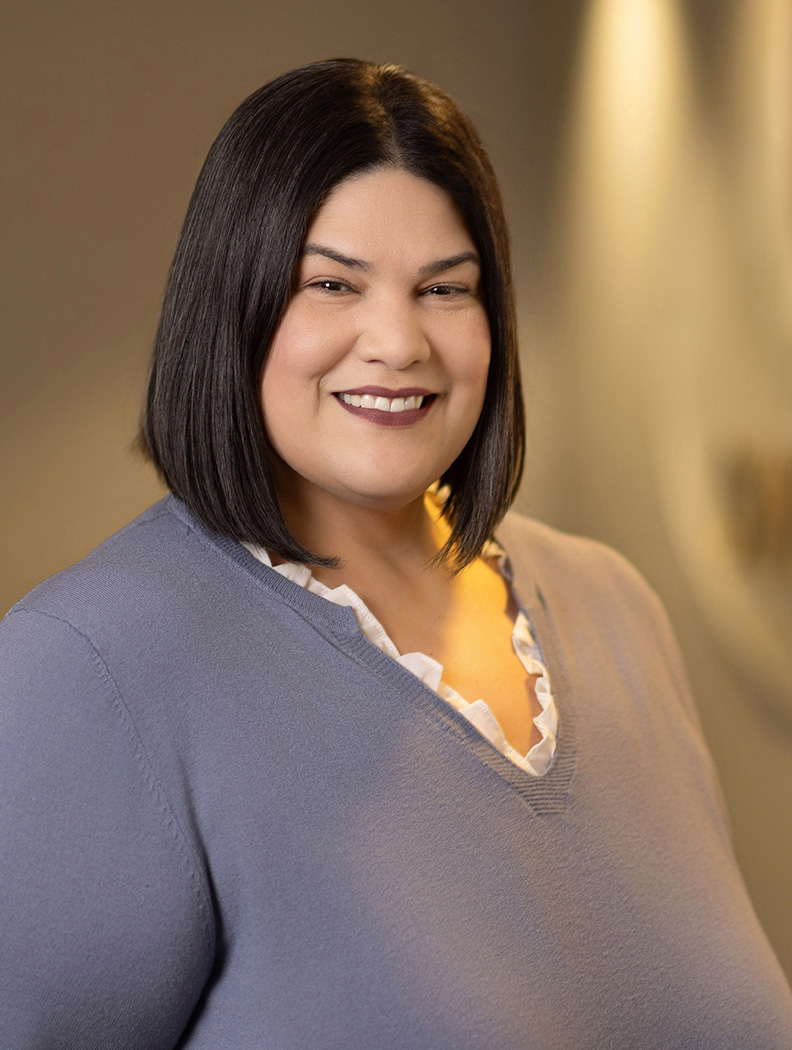Get Support
Counseling
Oncology social workers help you cope with the emotional and practical challenges of metastatic breast cancer. Contact us at 800‑813‑HOPE (4673) or info@cancercare.org.
Learn more about counseling.
For additional breast cancer helplines, see our main breast cancer webpage.
Resource Navigation
Learn more about how CancerCare Resource Navigation can help you address barriers to care.
Financial Assistance
Find resources and support to manage your financial concerns. Limited assistance from CancerCare® is available to eligible families for cancer-related costs.
Specialized Programs
CancerCare offers specialized programs to address specific populations and concerns.
Coping Circle Workshops
Virtual educational and supportive workshops led by oncology social workers and qualified co-facilitators. These workshops cover numerous topics and are offered in English and Spanish.
Find Information
Connect Education Workshops
Listen in by telephone or online as leading experts in oncology provide up-to-date information about cancer-related issues in one-hour workshops. Podcasts are also available.
Podcasts
Metastatic Breast Cancer
- HER2-Positive Metastatic Breast Cancer: What’s New in Treatment and Quality-of-Life, Jun 6, 2025
- Metastatic Breast Cancer: Treatment Updates, May 5, 2025
- Breast Cancer in Younger Women: New Treatment Options, Mar 26, 2025
- Metastatic Triple Negative Breast Cancer: Strategies to Cope, Oct 23, 2024
- HER2-Positive Metastatic Breast Cancer: What’s New in Treatment and Quality of Life, Apr 24, 2024
- Breast Cancer in Younger Women: New Treatment Options, Feb 7, 2024
- Updates in the Treatment of Estrogen Receptor (ER) Positive, Progesterone Receptor (PR) Positive and HER2 Positive Breast Cancer from the 46th Annual San Antonio Breast Cancer Symposium (SABCS), Jan 17, 2024
- The Benefits of Clinical Trials for Triple Negative Breast Cancer, Jan 10, 2024
- Metastatic Triple Negative Breast Cancer: Strategies to Cope, Oct 25, 2023
- Managing the Side Effects of Immunotherapy, Apr 5, 2023
- Lobular Breast Cancer: Treatment Progress, Mar 29, 2023
- Understanding the Role of Immunotherapy in Treating Cancer, Mar 22, 2023
General Topics
- Addressing the LGBTQI+ Health Disparities Gap, Jun 25, 2025
- Children as Caregivers for a Loved One with Cancer, Jun 24, 2025
- Diverse Populations Participating in Decisions About Your Care with Your Health Care Team, Jun 17, 2025
- Current Perspectives on the Future of Cancer Research, Jun 5, 2025
- Understanding How Health Care Disparities May Influence Your Cancer Treatment and Care, Jun 2, 2025
- Cancer & the Workplace: Understanding Your Legal Protections, Apr 30, 2025
- Understanding the Cost of Care & Your Health Care Coverage, Apr 23, 2025
- Managing Eye and Vision Changes Related to Cancer Treatments, Apr 21, 2025
- Trends in Oncology & Treatment Planning: A Guide to Getting the Best Care, Apr 16, 2025
- Coping with Cancer, Mar 12, 2025
- Understanding the Different Names for Biomarker Testing and Their Role in Selecting the Best Treatment for You, Mar 10, 2025
- Understanding the Important Role that Biomarker Testing Plays in Informing the Treatment of Cancer, Mar 3, 2025
- Clinical Trials: How They Transform the Treatment of Cancer, Feb 4, 2025
- Understanding Treatment-Related Skin Toxicity: Practical Tips to Cope with Rash, Dry/Itchy/Peeling Skin and Nail Changes, Jan 17, 2025
- Cancer in the Workplace, Health Insurance, Finances and Returning to School, Dec 13, 2024
- Challenges Young Adults with Cancer Face: Coping Tips, Dec 6, 2024
- Chemotherapy: Novel Approaches to Prevent and Manage Gastrointestinal Treatment Side Effects, Nov 22, 2024
- Caregiving for Your Loved One with Cancer, Sep 23, 2024
- Current Perspectives on Cancer Survivorship, Sep 10, 2024
- Current Perspectives on the Future of Cancer Research, Jun 27, 2024
- How Health Care Disparities May Influence Your Cancer Treatment, Jun 17, 2024
- What’s New in Precision Medicine, Jun 12, 2024
- Caring for Your Loved One with Cancer, May 13, 2024
- Diverse Populations Participating in Decisions about Your Care, Apr 22, 2024
- Managing Eye and Vision Changes Related to Cancer Treatments, Apr 8, 2024
- Understanding the Different Names for Biomarker Testing & Their Role in Selecting the Best Treatment for You, Mar 4, 2024
- Chemotherapy: Novel Approaches to Prevent and Manage Gastrointestinal Treatment Side Effects, Feb 16, 2024
- Understanding the Important Role that Biomarker Testing Plays in Informing the Treatment of Cancer, Feb 12, 2024
- Young Adult Survivorship: Fertility, Sexuality and Intimacy, Feb 9, 2024
- Addressing the LGBTQI+ Health Disparities Gap, Jan 19, 2024
- Challenges Young Adults with Cancer Face: Coping Tips, Dec 15, 2023
- Current Perspectives on Cancer Survivorship, Nov 28, 2023
- Diverse Populations Participating in Decisions About Your Care With Your Health Care Team, Jun 28, 2023
- Understanding Diagnostic Technologies and Biomarkers, Jun 26, 2023
- Addressing the LGBTQI+ Health Disparities Gap, Jun 16, 2023
- Taking Your Pills on Schedule: Its Importance in Managing Cancer, May 24, 2023
- Understanding How Health Care Disparities May Influence Your Cancer Treatment and Care: With Tips and Strategies to Find the Best Cancer Treatment and Health Care Team for You, May 15, 2023
- Current Perspectives on Cancer Survivorship, May 2, 2023
- Taking Your Pills on Schedule: Why It Is So Important in Managing Cancer, May 4, 2022
- Current Perspectives on Cancer Survivorship, May 3, 2022
- Current Perspectives on Cancer Survivorship, Feb 9, 2021
- The 9/11 Community, Cancer & COVID-19, Jan 25, 2021
- Managing the Cost of Living with Cancer, Sep 23, 2020
- Veterans Living with Cancer, Jun 26, 2020
- What are Biosimilars? Understanding Their Role in Cancer Treatment: Current and Future Perspectives, Jun 18, 2020
- Current Perspectives in Cancer Survivorship, Jun 16, 2020
- Cancer and The Workplace: Understanding Your Legal Protections, Mar 25, 2020
- Understanding the Costs of Care and Your Health Care Coverage, Mar 18, 2020
- Joys and Challenges of Pets in Your Home When You Have Cancer, Apr 8, 2019
- Mind Body Techniques to Cope with the Stresses of Cancer, Nov 15, 2017
- Managing Sensory Disruptions During Cancer Treatments, Dec 5, 2016
- Nutrition and Healthy Eating Tips During and After Cancer Treatments, Feb 1, 2016
Publications
Read or order our free Connect booklets and fact sheets offering easy-to-read information about the latest cancer treatments, managing side effects and coping with cancer.
Metastatic Breast Cancer
- Treatment Update: Breast Cancer With Highlights From the 2024 San Antonio Breast Cancer SymposiumNew
- Treatment Update: Metastatic Breast CancerNew
- After a Breast Cancer Diagnosis: Questions to Ask Your Doctor
- Coping With Metastatic Breast Cancer
- Coping With Triple Negative Breast Cancer
- Improving Support In Treatment Decision Making For Patients With Metastatic Breast Cancer
- Managing Practical Concerns Raised by Metastatic Breast Cancer
- Mastectomy and Lumpectomy: Understanding Your Treatment Options
- Newly Diagnosed African American Women: What You Need to Know
- Prostheses Resources
- Treatment Update: Breast Cancer With Highlights From the 2020 San Antonio Breast Cancer Symposium
- Treatment Update: Breast Cancer With Highlights From the 2022 San Antonio Breast Cancer Symposium
- Treatment Update: Breast Cancer With Highlights From the 2023 San Antonio Breast Cancer Symposium
- Treatment Update: Metastatic Triple-Negative Breast Cancer (TNBC)
General Topics
- Coping With Cancer: Tools to Help You LiveNew
- Caregiving for Your Loved One With Cancer
- Talking to Children When a Loved One Has Cancer
- Communicating With Your Health Care Team
- Sources of Financial Assistance
- Finding Resources in Your Community
- If You've Just Been Diagnosed
- What Can I Say to a Newly Diagnosed Loved One?
- Advice for Caregivers: How Can You Help Yourself?
Ask CancerCare
Every month, featured experts answer your questions about coping with cancer. View all questions and answers.
Metastatic Breast Cancer
- Q.
My mother was recently diagnosed with metastatic breast cancer and about 2 years ago, began to show signs of dementia. Can you refer me to resources regarding providing care to patients with dementia and cancer? My elderly father is the primary caregiver and I am an out of town caregiver.
A.Dealing with a dual diagnosis of dementia and cancer brings many challenges regarding care. Start by assessing both you and your father’s needs as caregivers and the needs of your mother. What do you and your family need help with? Areas to consider are personal care, household care, health care, and emotional care. It is also important to discuss with your mother what her preferences for care are as much as she is able. If she is not able to discuss this, you and your father will want to consider what she would feel comfortable with.
The next step is to find support. State and federal agencies are good starting points for information about local programs and services. You can find your local office through the Eldercare Locator. The Family Caregiver Alliance, also has a wealth of information on caregiver support, as well as a state by state listing of services available. It is important to remember throughout your mother’s care that support is important not only for patients, but also for caregivers. You and your father’s needs must be met, so you don’t become overwhelmed and exhausted. To learn about ways to take care of yourself, please read, Caregiving for Your Loved One With Cancer.
- Q.
Since being diagnosed with breast cancer, I can't seem to keep on top of things like I used to and it seems like I'm in a fog. I've mentioned this to my doctor but I think his focus is more on my treatment and less on my concerns. Anything I can say to make him listen?
A.After being diagnosed with cancer, many women report having trouble finding words and remembering things. Be persistent in communicating with your doctor about what you are experiencing. Here are some tips that may help you:
- Request a time to speak with your doctor to focus on your specific concerns
- Express how these concerns are affecting you and your quality of life
- Be specific and give examples
- Use statements such as, “I need your help understanding this” and “Do you have any suggestions on what I can do?”
For more tips read our publications, Communicating With Your Health Care Team and “Doctor Can We Talk?”
It’s also possible that you may be experiencing side effects from chemotherapy. This is sometimes referred to as “chemobrain,” a condition that affects your short-term memory. You may consider getting evaluated by a neuropsychologist (an expert trained in how the nervous system, especially the brain, controls mental functions such as language, memory, and perception) who can assess any cognitive changes and suggest mental exercises to improve memory and thinking. Chemobrain usually lessens over time once treatment has ended.
A few steps you can take now to improve your memory:
- Keep a notebook or day planner where you can write down things you need to remember
- Keep the notebook in a specific place so you can find it when you need to
- Use Post-it notes to place reminders in your home, office or other spaces
To learn more about chemobrain, read CancerCare’s fact sheets:
- Q.
My mother has stage 4 breast cancer and I'd like to know if she would be eligible for any clinical trials.
A.Whether or not a clinical trial would be an option for your mother will be determined by several factors. The guidelines that clinical trials follow state who will be able to join the study, based on the questions the research is trying to answer. Therefore, your mother’s type of cancer, as well as the stage of her disease, her age and whether she has received any prior treatment would be examples of some of the eligibility criteria that may come into play. I would encourage you and your mother to speak to her doctor about this important question, since only her doctor can determine whether a clinical trial would be appropriate.
To locate clinical trials that might be suitable for her, call the National Cancer Institute’s (NCI) Cancer Information Service at 1-800-422-6237, or you can search the NCI’s clinical trials database. If you need help using our clinical trials online search form, read Help Using the NCI Clinical Trials Search Form.
CancerCare’s clinical trials publications are also excellent resources.
- Q.
My wife is receiving chemotherapy for breast cancer and I know the holidays will be hard. Do you have any suggestions as to what I can do to help her?
A.The holidays often represent a time of celebration and connecting with loved ones; coping with cancer treatment during this time can be stressful. Your wife may be experiencing side effects that make it hard to focus on the holidays alone, but there are many things that you can do to help her cope with the stress of treatment and to enjoy this holiday season. You can help your wife significantly by paying attention to both her physical and emotional needs, as well as your own.
Talk to your wife about how she wants to spend the holidays. You can also support her as she makes decisions about what activities she can tolerate this year. Managing expectations is an important part of coping with a cancer diagnosis, so consider what traditions she may need to take a pass on this year. Establishing new holiday traditions with close family and friends may allow her to feel more satisfied and supported.
Having an open conversation with her medical team about holiday plans can help provide guidance and support in managing side effects appropriately. They may be able to make dietary suggestions, offer advice on pain management, or make a more flexible treatment schedule if possible. This may help in keeping her focused on the meaning of the holidays rather than uncomfortable side effects.
Also, take good care of yourself this holiday season. As a caregiver, it is important that you think about your needs as well. Talk to friends, go for a walk, or spend alone time with your wife. Considering your own feelings will help to maximize the support you are able to offer your wife.
CancerCare offers publications to help you and your family cope with the holidays during cancer treatment:
You can also listen to CancerCare’s Connect Education Workshops that address coping with cancer during the holidays.
CancerCare’s professional oncology social workers can provide emotional and practical support to further help you and your family find ways of coping. Please call us at 800-813-4673 for support and practical help.
- Q.
I have metastatic breast cancer. I drive from Spartanberg, SC to Charleston, SC once a month and stay over for about two nights for treatment. Is there any help you give for transportation and/or lodging costs?
A.CancerCare offers limited assistance for transportation, home care and child care for women who qualify. Limited funds are also available to assist with certain oral, pain, and anti-nausea medications, lymphedema supplies and durable medical equipment. Please call us at 800-813-HOPE (4673) to apply.
American Cancer Society’s Road to Recovery program provides transportation to and from treatment for people who have cancer and either do not have available transportation or are unable to drive themselves. Volunteer drivers donate their time and the use of their cars so that patients can receive the treatments they need. Call 800-ACS-2345 to find out if Road to Recovery is available in your community.
Joe’s House is an online database listing thousands of places to stay across the country near hospitals and treatment centers that offer a discount for traveling patients and their loved ones.
Society of St. Vincent de Paul provides various services to people in need, including food programs, emergency financial assistance, emergency transportation, rent/mortgage assistance, free pharmacy services, budget counseling, referral services and more. To get help, contact the nearest Catholic Church in your community and ask if they have a Society of St. Vincent de Paul Conference in their parish or know of one close by. You can also look for “Society of St. Vincent de Paul” in your local White Pages or call 314-576-3993.
Your local United Way may know of resources that offer financial assistance. To find your local office, please visit their website or call 651-291-0211 or 211.
Finally, you can search for local resources through a website created by the Cancer Financial Assistance Coalition.
- Q.
Is there a way to find triple-negative breast cancer specialists? And are there specific support groups or programs to speak with women with triple-negative breast cancer?
A.When coping with a diagnosis of triple-negative breast cancer, it is important to ensure that your medical team is well-informed about the latest research and best practices. While we are unable to recommend or endorse a specific doctor, here are some suggestions for seeking out a breast cancer specialist who is experienced with treating triple-negative breast cancer.
The National Cancer Institute has designated cancer centers throughout the United States and provides information on doctors practicing in your area. You can access their online database or call them at 800-4-CANCER.
Ask your current doctor for a referral. Many people may feel hesitant to ask for a second opinion for fear of creating an uncomfortable relationship with the doctor. But be assured that a second opinion is considered a routine and necessary component of one’s health care plan. In fact, most medical professionals expect their patients to receive a second opinion.
Researching clinical trials in your area will allow you to learn which doctors are participating, and get an idea of specialists in the field. A free, confidential resource to locate clinical trials accepting women with triple-negative breast cancer is The Clinical Trials Matching Service website and helpline: 877-769-4827.
Contact the local county medical society, hospitals or breast cancer center in your area.
It is perfectly acceptable to ask doctors how many of their patients have TNBC, and how familiar they are with treating this subtype of breast cancer.
To answer your second question, getting support from other women who have experienced triple negative breast cancer can be a valuable tool to feel less alone and more empowered. Organizations such as Living Beyond Breast Cancer and the American Cancer Society provide a service called peer matching, in which you can be paired with a volunteer who had a similar diagnosis. The Triple Negative Breast Cancer Foundation has a very active online forum where people impacted by TNBC discuss various topics. There may be support groups in your area where you can connect with peers, as well. Your oncology social worker is a good resource for local referrals.
- Q.
My sister has stage four breast cancer, which is now gone to her bones and other places. My question is, I would like to see her remaining months happy and would like to see her smile, though with her bad teeth from the chemo her teeth are all broken or dead, she can't afford to get them fixed. Do you know where we could get help for her?
A.I am sorry to hear of the impact chemotherapy had on your sister’s teeth. Dental health is important both during and after cancer treatment, but lack of dental insurance and high out-of-pocket costs can make even a routine dental visit a hardship for individuals already burdened by medical bills. There may be ways to obtain dental procedures or check-ups at a more manageable cost. First, local dental schools often run low-cost or sliding-scale fee clinics for routine dental call or minor procedures; if there is a dental school near your sister, they may be a good first point of contact. The American Dental Association provides an online dental school locator. Second, the Dental Lifeline Network offers an online database of free or reduced cost dental services in each state. Keep in mind that because of limited resources and often high demand, the availability of programs can vary and there may be a waiting list.
Additionally, the U.S. Health and Human Services Department maintains a list of local health clinics in each state that provide sliding-scale fee health services. While the main focus of these clinics is on primary medical care, some centers have oral health/dental services available. Utilize the online map to locate programs in your sister’s area, and then contact them directly to inquire about dental services.
Finally, if your sister had a general dentist she’s seen in the past, it may be worthwhile to contact that provider and see if he/she has any recommendations. Offices are sometimes willing to work out a payment plan for more costly services that would potentially allow your sister to get the procedures she needs.
Additional Resources:
Connect Education Workshop Podcasts on Dental Hygiene:
- Q.
My sister has breast cancer, and now she has lymphedema as a result of her breast removal. Her therapist wants her to get a sleeve and glove. She went to be fitted and found the cost would be about $340. Medicare nor insurance will pay anything on this. Is there any funding available for this expense?
A.For women undergoing breast cancer treatment and those in the survivorship phase, lymphedema can pose new challenges at an already difficult time. Unfortunately, despite ongoing advocacy efforts, there is minimal insurance coverage for lymphedema garments including the sleeve and gloves that your sister was encouraged to obtain. For many women, the large out of pocket expense of the garments can be a significant financial challenge. There are some resources that exist to assist women in purchasing the lymphedema supplies that they need.
CancerCare may be able to assist with a one-time grant for the purchase of lymphedema supplies. To determine eligibility, you or your sister would call our Hopeline at 800-813-4673 and speak briefly with an oncology social worker. If eligible, a brief application would be mailed to your sister for completion.
There may be other local organizations that provide assistance for lymphedema supplies. Our Hopeline social workers would be happy to explore potential resources for your sister. We can be reached Monday through Thursday from 9 a.m. - 7 p.m. Eastern Time and Fridays from 9 a.m. - 5 p.m. Eastern Time.
Featured Resource
Magnolia Meals at Home
A meal delivery program that helps patients by providing nourishing meals to households affected by cancer. Is currently available in and around Woodcliff Lake, NJ and Andover, MA, Raleigh-Durham, NC and New Haven, CT (as well areas in New York, New Hampshire and Boston, MA). For more information please visit magnoliamealsathome.com or contact Kathy Nugent, LCSW at 800-813-4673, ext. 6809.
Stories of Help and Hope
Read inspiring personal accounts from people affected by cancer and the ways they've found to cope.
- Rasheen D., Diagnosed with breast cancer
- Theodosia B., Diagnosed with breast cancer
Browse all CancerCare services
by Diagnosis
by Topic
Additional Resources
For Metastatic Breast Cancer
After Breast Cancer Diagnosis (ABCD)
Alliance in Reconstructive Surgery (AiRS)
American Breast Cancer Foundation
CancerCare Co-Payment Assistance Foundation
Christine S. Walsh Foundation
Pink Fund
SHARE Cancer Support
Sharsheret: The Jewish Breast & Ovarian Cancer Community
Sisters Network® Inc. - A National African American Breast Cancer Survivorship Organization
The DONNA Foundation
Tigerlily Foundation
TOUCH, The Black Breast Cancer Alliance
General Cancer Resources
American Cancer Society
Medical Information
National Cancer Institute
National Comprehensive Cancer Network® (NCCN®) – NCCN Guidelines for Patients®

 Answered by
Answered by  Answered by
Answered by  Answered by
Answered by  Answered by
Answered by  Answered by
Answered by  Answered by
Answered by